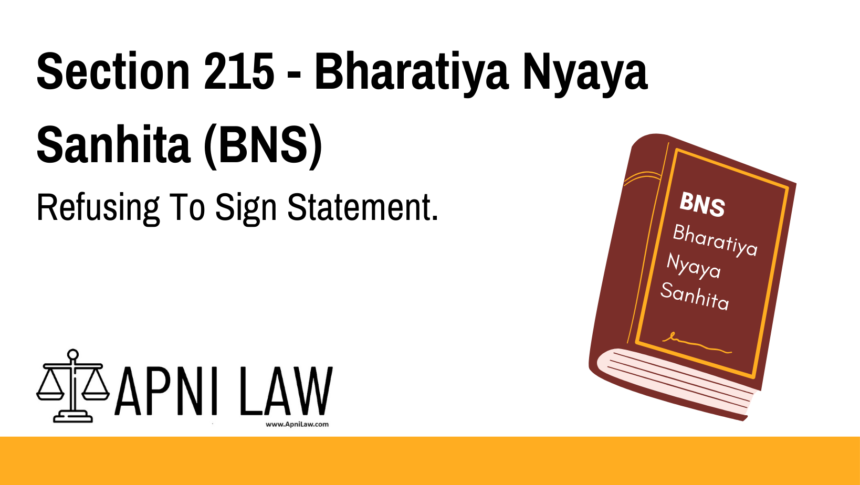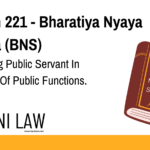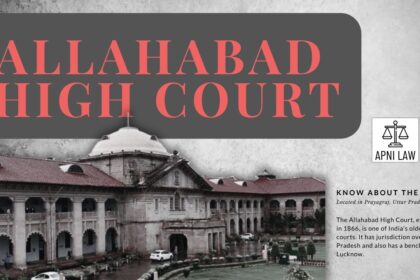Code: Section 215 BNS
Whoever refuses to sign any statement made by him, when required to sign
that statement by a public servant legally competent to require that he shall sign that
statement, shall be punished with simple imprisonment for a term which may extend to
three months, or with fine which may extend to three thousand rupees, or with both.
Explanation of Section 215 BNS
Section 215 of the Bharatiya Nyaya Sanhita, 2023 (BNS) penalizes individuals who refuse to sign a legally recorded statement when required to do so. This provision ensures that statements recorded in legal or investigative proceedings are authenticated by the individual providing them, preventing later disputes over their validity.
Key aspects of this section include:
- Applicability: It applies to anyone legally bound to state the truth before a public servant or any authority authorized to record statements.
- Legal Obligation: Once a statement is lawfully recorded, the individual must sign it to confirm its accuracy.
- Consequences of Non-Compliance: Refusing to sign can lead to penalties under the BNS, ensuring accountability in legal proceedings.
This provision ensures that legal and investigative processes maintain credibility and that individuals do not disown statements given during inquiries.
Illustration
Example 1: Witness in a Criminal Case
A person witnesses a crime and provides a statement to the police. After the officer records the statement, the witness refuses to sign it. Under Section 215 BNS, the witness may face legal consequences for refusing to authenticate their statement.
Example 2: Accused Refusing to Sign a Confession
An accused individual voluntarily provides a confession to a magistrate under oath. However, they later refuse to sign the statement. This refusal could lead to penalties under Section 215 BNS, ensuring that legally recorded statements hold evidentiary value.
Common Questions and Answers on Section 215 BNS
1. Why is signing a recorded statement necessary?
Signing a recorded statement ensures its authenticity and prevents individuals from later denying their statements.
2. What happens if a person refuses to sign a statement under Section 215 BNS?
Refusing to sign a legally recorded statement can lead to penalties under the Bharatiya Nyaya Sanhita (BNS).
3. Does Section 215 apply to all types of statements?
Yes, it applies to statements recorded before public servants or authorities legally authorized to record and administer oaths.
4. Can an individual challenge the content of a statement before signing it?
Yes, before signing, the individual can review the statement and request corrections if it does not accurately reflect their words.
Conclusion
Section 215 BNS ensures that statements recorded in legal or investigative proceedings are signed for authenticity. This prevents disputes over the validity of statements and upholds the integrity of the judicial system.
For more legal insights, visit ApniLaw! 🚀








